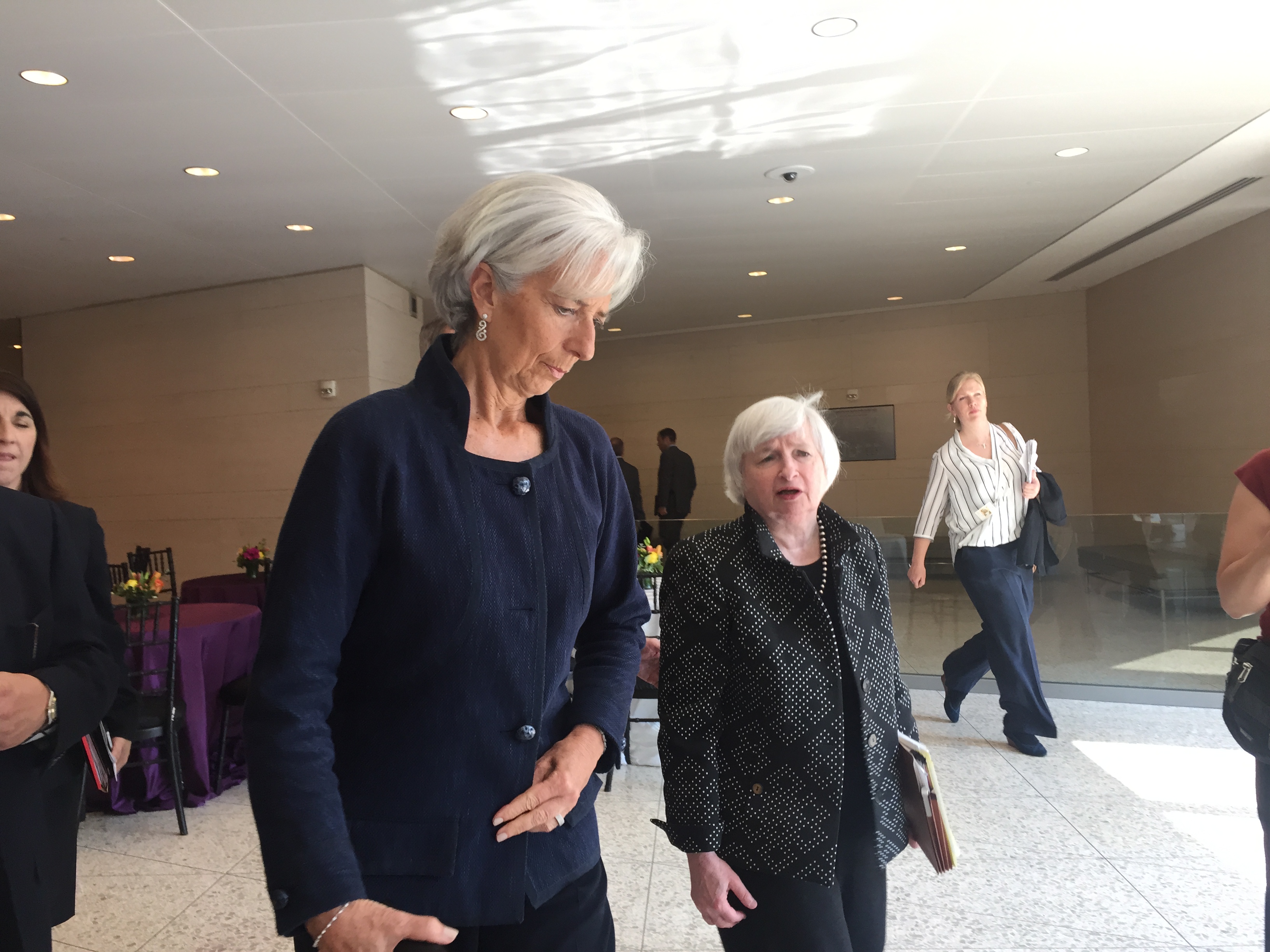WASHINGTON — Federal Reserve Chair Janet Yellen on Wednesday warned that stocks are overvalued, signaling possible danger for the U.S. economy.
“I would highlight the equity market valuations at this point generally are quite high,” Yellen said during a conversation with International Monetary Fund Managing Director Christine Lagarde at IMF headquarters. “They are not so high when you compare the returns on equities to the return on safe assets, like bonds, which are also very low, but there are potential dangers there. ”
The Fed’s decision to keep interest rates low has, in part, fueled a surging stock market in recent months.
In the U.S., interest rates for the best customers have been holding at a near zero level for more than six years. There is a speculation that the Fed will raise rates in the second half of the year. However, lower-than-expected American economic growth may delay the Fed’s decision on rates.
When answering a question from Lagarde, Yellen defended keeping interest rates low and said the Fed is taking the most prudent actions to monitor and regulate the markets.
“The reason is we really think the policy is necessary to help our economy move back to full employment and to achieve price stability objectives,” Yellen said.
The Fed chief said low interest rates have “a favorable financial stability effect.” But the central bank is also watching for potential risks. “It is true that in a low interest rate environment, we need to be sensitive and watch for risk to financial stability.”
Yellen said the Fed is doing two things: carefully monitoring risks to see if they are developing, and supervising and analyzing banks’ ability to withstand potential crisis through stress testing.
Interest rates are near zero in most of the world’s advanced economies. And that could possibly incent global investors to seek riskier investment instruments for higher returns, Yellen said.
“We do see some risks are developing,” Yellen said. However, her overall assessment is that “risks to financial stability are moderated, but not elevated.”
Lagarde also addressed the role of regulation to prevent another financial crisis.
“If supported by good regulation and supervision,” Lagarde said, “financial inclusion can actually go hand in hand with financial stability.”
The next frontier to watch may be in the banking sector.
“I think one of the most important things looking ahead is migrating risk,” said Thomas Östros, alternative executive director at the office of the Nordic-Baltic constituency of the IMF. “We are now regulating the banking sector, but the tendency is the risk is moving out from the banking sector to the shadow banking sector.”
“How to regulate the shadow banking sector?” said the Swedish economist, “I think it should be the next important issue.”


